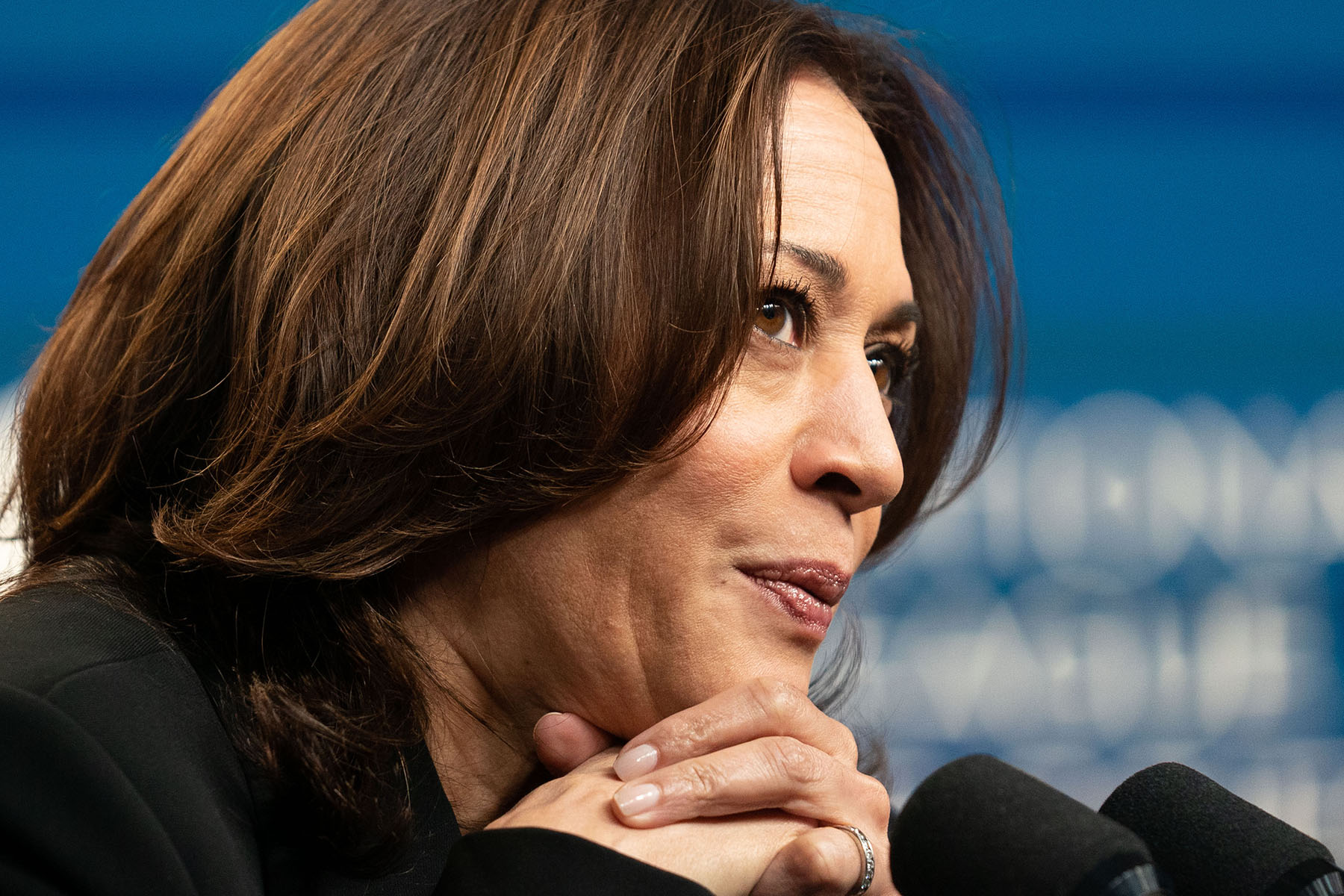DES MOINES, Iowa — Vice President Kamala Harris traveled to Iowa’s capital city Friday to defend abortion access, her second such visit to the ruby-red state this year. The political significance was palpable.
Friday marked exactly two weeks since the state’s Republican governor signed into law a six-week abortion ban that was quickly put on legal hold. Harris’ visit also fell on the same day that the major Republican candidates for president — many of whom support more abortion restrictions — were scheduled to speak at a party fundraiser just a few miles away.
Jennifer Palmieri, a former Democratic communications director, highlighted how abortion restrictions were shaping Iowa as she interviewed Harris from an auditorium stage at Drake University.
“Why did you want to be here today?” Palmieri asked. “What did you want to tell Iowa today?”
Harris, who visited Iowa frequently in 2019 when she made an unsuccessful bid for president, called the state “part of a very important aspect of who we are.”
“The state of Iowa, how Iowans are doing, is a measure of how we are doing as a country,” Harris said.
Iowa’s status within the Republican Party — it is scheduled to hold the first caucus on the presidential nominating calendar next year — means policies in the state are shaping the campaigns of several Republican presidential hopefuls who are now traveling there to woo voters.
Following the 2022 midterm elections, Republicans in the state passed legislation that redirects public dollars toward privatized education and restricts gender expression. And earlier this month, state lawmakers, on orders from Republican Gov. Kim Reynolds, convened for an unusual one-day special session to approve the new abortion ban. Iowa polling shows a majority in the state support access to legal abortion.
GOP presidential candidates frequently compliment Reynolds and the Republican-led legislature, though former President Donald Trump, the party’s frontrunner for the nomination, has eschewed some of that messaging and most traditional appearances so far. Trump, who is scheduled to appear in Iowa on Friday, is in the midst of several legal investigations related to his time in office.
Abortion has emerged as a key issue on the campaign trail for Republicans as they try to court evangelical Christians, who have power within the state to make or break a campaign. The extent of candidates’ support for a national restriction or whether they plan to offset that with paid leave and child policies is still emerging.
During that same time, Harris has emerged as a key voice on reproductive rights within the Biden administration. Her office says since the U.S. Supreme Court ruling in June 2022 that overturned Roe v. Wade, the vice president has traveled to at least 16 states to hold dozens of events related to reproductive health.
Harris pointed out on Friday many of the new restrictions that have emerged in recent months have no or limited exemptions for people who experience rape or incest.
“These supposed leaders have decided they’re in a better position to tell her what’s in her best interest than she is to know. Imagine where we are right now in terms of just fundamental values, and a fundamental level of respect and appreciation for the fact that women know what’s in their best interest,” she said. “They don’t need to be told by their government.”
Harris called Iowa’s abortion law — which would restrict most abortions in the state after six weeks of pregnancy — an effective ban, noting at one point that most pregnant people do not know they are pregnant at that point.
“As I travel the country, it becomes clear to me that so many people in these state legislatures don’t even know how women’s bodies work,” Harris said.
That line, like several others during the roughly 40-minute appearance, drew loud applause from an audience that included Democratic state lawmakers, abortion advocates, students and residents.
Ruth Richardson, president and CEO of Planned Parenthood North Central States, delivered brief remarks ahead of Harris’ appearance and noted the connection between abortion restrictions and high rates of maternal mortality.
“In this post-Roe world, the health care decisions we were once free to make with our doctors, that gave us control of our lives, our bodies and our futures, have become increasingly political,” she said. “No where is that more apparent than here, in Iowa.”
During her remarks, Harris also drew a connection between abortion restrictions around the country to new limitations on voting access and LGBTQ+ rights. She specifically called out Florida’s “Don’t Say Gay” legislation that limits instruction on sexual orientation or gender identity. Palmieri also highlighted that Harris recently criticized a new history curriculum in Florida that implies Black people benefited from slavery.
“I do believe that we are witnessing a national agenda that is about a full on attack against hard won, hard fought freedoms and rights,” Harris said.
Sen. Pam Jochum, the minority leader for Democrats in the state Senate, said it was important that Harris continues to travel to Iowa, even as the national party plans to diminish Iowa’s role in deciding future presidential candidates in favor of states with more demographic diversity.
“The fact that she is here just tells Iowans, no we are not forgotten, and that they are watching Iowa and that they do care about Iowa,” she said.





